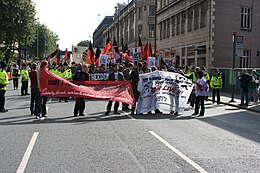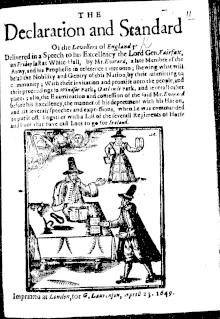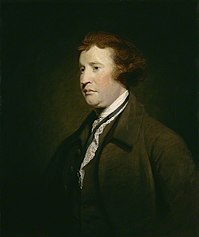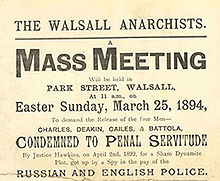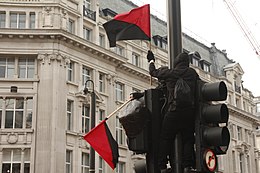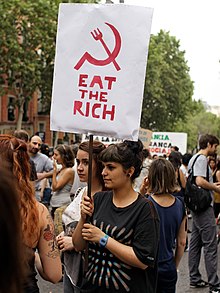In Western anthropology, philosophy, and literature, the Myth of the Noble savage refers to a stock character who is uncorrupted by civilization. As such, the "noble" savage symbolizes the innate goodness and moral superiority of a primitive people living in harmony with Nature. In the heroic drama of the stageplay The Conquest of Granada by the Spaniards (1672), John Dryden represents the noble savage as an archetype of Man-as-Creature-of-Nature.
The intellectual politics of the Stuart Restoration (1660–1688) expanded Dryden's playwright usage of savage to denote a human wild beast and a wild man. Concerning civility and incivility, in the Inquiry Concerning Virtue, or Merit (1699), the philosopher Anthony Ashley-Cooper, 3rd Earl of Shaftesbury, said that men and women possess an innate morality, a sense of right and wrong conduct, which is based upon the intellect and the emotions, and not based upon religious doctrine.
In the philosophic debates of 17th-century Britain, the Inquiry Concerning Virtue, or Merit was the Earl of Shaftesbury's ethical response to the political philosophy of Leviathan (1651), in which Thomas Hobbes defended absolute monarchy and justified centralized government as necessary because the condition of Man in the apolitical state of nature is a "war of all against all", for which reason the lives of men and women are "solitary, poor, nasty, brutish, and short" without the political organization of people and resources. The European Hobbes gave, incorrectly, as example the Native Americans as people living in the bellicose state of nature that precedes tribes and clans organizing into the societies that compose a civilization.
In 18th-century anthropology, the term noble savage then denoted nature's gentleman, an ideal man born from the sentimentalism of moral sense theory. In the 19th century, in the essay "The Noble Savage" (1853) Charles Dickens rendered the noble savage into a rhetorical oxymoron by satirizing the British romanticisation of Primitivism in philosophy and in the arts made possible by moral sentimentalism.
In many ways, the noble savage notion entails fantasies about the non-West that cut to the core of the conversation in the social sciences about Orientalism, colonialism and exoticism. The key question that emerges here is whether an admiration of "the Other" as noble undermines or reproduces the dominant hierarchy, whereby the Other is subjugated by Western powers.
Origins

- 16th century
The stock character of the noble savage originated from the essay "Of Cannibals" (1580), about the Tupinambá people of Brazil, wherein the philosopher Michel de Montaigne presents "Nature's Gentleman", the bon sauvage counterpart to civilized Europeans in the 16th century.

- 17th century
The first usage of the term noble savage in English literature occurs in John Dryden's stageplay The Conquest of Granada by the Spaniards (1672), about the troubled love of the hero Almanzor and the Moorish beauty Almahide, in which the protagonist defends his life as a free man by denying a prince's right to put him to death, because he is not a subject of the prince:
I am as free as nature first made man,
Ere the base laws of servitude began,
When wild in woods the noble savage ran.
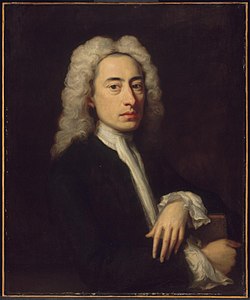
- 18th century
By the 18th century, Montaigne's predecessor to the noble savage, nature's gentleman was a stock character usual to the sentimental literature of the time, for which a type of non-European Other became a background character for European stories about adventurous Europeans in the strange lands beyond continental Europe. For the novels, the opera, and the stageplays, the stock of characters included the "Virtuous Milkmaid" and the "Servant-More-Clever-Than-the-Master" (e.g. Sancho Panza and Figaro), literary characters who personify the moral superiority of working-class people in the fictional world of the story.
In English literature, British North America was the geographic locus classicus for adventure and exploration stories about European encounters with the noble savage natives, such as the historical novel The Last of the Mohicans: A Narrative of 1757 (1826), by James Fenimore Cooper, and the epic poem The Song of Hiawatha (1855), by Henry Wadsworth Longfellow, both literary works presented the primitivism (geographic, cultural, political) of North America as an ideal place for the European man to commune with Nature, far from the artifice of civilisation; yet in the poem “An Essay on Man” (1734), the Englishman Alexander Pope portrays the American Indian thus:
Lo, the poor Indian! whose untutor'd mind
Sees God in clouds, or hears Him in the wind;
His soul proud Science never taught to stray
Far as the solar walk or milky way;
Yet simple Nature to his hope has giv'n,
Behind the cloud-topp'd hill, a humbler heav'n;
Some safer world in depth of woods embrac'd,
Some happier island in the wat'ry waste,
Where slaves once more their native land behold,
No fiends torment, no Christians thirst for gold!
To be, contents his natural desire;
He asks no angel's wing, no seraph's fire:
But thinks, admitted to that equal sky,
His faithful dog shall bear him company.
To the English intellectual Pope, the American Indian was an abstract being unlike his insular European self; thus, from the Western perspective of "An Essay on Man", Pope's metaphoric usage of poor means "uneducated and a heathen", but also denotes a savage who is happy with his rustic life in harmony with Nature, and who believes in deism, a form of natural religion — the idealization and devaluation of the non-European Other derived from the mirror logic of the Enlightenment belief that "men, everywhere and in all times, are the same".
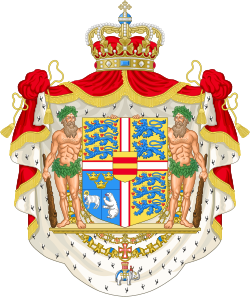
- 19th century
Like Dryden's noble savage term, Pope's phrase "Lo, the Poor Indian!" was used to dehumanize the natives of North America for European purposes, and so justified white settlers' conflicts with the local Indians for possession of the land. In the mid-19th century, the journalist-editor Horace Greeley published the essay "Lo! The Poor Indian!" (1859), about the social condition of the American Indian in the modern United States:
I have learned to appreciate better than hitherto, and to make more allowance for the dislike, aversion, contempt wherewith Indians are usually regarded by their white neighbors, and have been since the days of the Puritans. It needs but little familiarity with the actual, palpable aborigines to convince anyone that the poetic Indian — the Indian of Cooper and Longfellow — is only visible to the poet's eye. To the prosaic observer, the average Indian of the woods and prairies is a being who does little credit to human nature — a slave of appetite and sloth, never emancipated from the tyranny of one animal passion, save by the more ravenous demands of another.
As I passed over those magnificent bottoms of the Kansas, which form the reservations of the Delawares, Potawatamies, etc., constituting the very best corn-lands on Earth, and saw their owners sitting around the doors of their lodges at the height of the planting season, and in as good, bright planting weather as sun and soil ever made, I could not help saying: "These people must die out — there is no help for them. God has given this earth to those who will subdue and cultivate it, and it is vain to struggle against His righteous decree."
Moreover, during the American Indian Wars (1609–1924) for possession of the land, European white settlers considered the Indians "an inferior breed of men" and mocked them by using the terms "Lo" and "Mr. Lo" as disrespectful forms of address. In the Western U.S., those terms of address also referred to East Coast humanitarians whose noble-savage conception of the American Indian was unlike the warrior who confronted and fought the frontiersman. Concerning the story of the settler Thomas Alderdice, whose wife was captured and killed by Cheyenne Indians, The Leavenworth, Kansas, Times and Conservative newspaper said: "We wish some philanthropists, who talk about civilizing the Indians, could have heard this unfortunate and almost broken-hearted man tell his story. We think [that the philanthropists] would at least have wavered a little in their [high] opinion of the Lo family."
Cultural stereotype
The Roman Empire
In Western literature, the Roman book De origine et situ Germanorum (On the Origin and Situation of the Germans, AD 98), by the historian Publius Cornelius Tacitus, introduced the anthropologic concept of the noble savage to the Western World; later a cultural stereotype who featured in the exotic-place tourism reported in the European travel literature of the 17th and the 18th centuries.
Al-Andalus
The 12th-century Andalusian novel The Living Son of the Vigilant (Ḥayy ibn Yaqẓān, 1160), by the polymath Ibn Tufail, explores the subject of natural theology as a means to understand the material world. The protagonist is a wild man isolated from his society, whose trials and tribulations lead him to knowledge of Allah by living a rustic life in harmony with Mother Nature.
Kingdom of Spain
In the 15th century, soon after arriving to the Americas in 1492, the Europeans employed the term savage to dehumanise the indigènes (noble-savage natives) of the newly discovered "New World" as ideological justification for the European colonization of the Americas, called the Age of Discovery (1492–1800); thus with the dehumanizing stereotypes of the noble savage and the indigène, the savage and the wild man the Europeans granted themselves the right to colonize the natives inhabiting the islands and the continental lands of the northern, the central, and the southern Americas.
The conquistador mistreatment of the indigenous peoples of the Viceroyalty of New Spain (1521–1821) eventually produced bad-conscience recriminations amongst the European intelligentsias for and against colonialism. As the Roman Catholic Bishop of Chiapas, the priest Bartolomé de las Casas witnessed the enslavement of the indigènes of New Spain, yet idealized them into morally innocent noble savages living a simple life in harmony with Mother Nature. At the Valladolid debate (1550–1551) of the moral philosophy of enslaving the native peoples of the Spanish colonies, Bishop de las Casas reported the noble-savage culture of the natives, especially noting their plain-manner social etiquette and that they did not have the social custom of telling lies.
Kingdom of France
In the intellectual debates of the late 16th and 17th centuries, philosophers used the racist stereotypes of the savage and the good savage as moral reproaches of the European monarchies fighting the Thirty Years' War (1618–1648) and the French Wars of Religion (1562–1598). In the essay "Of Cannibals" (1580), Michel de Montaigne reported that the Tupinambá people of Brazil ceremoniously eat the bodies of their dead enemies, as a matter of honour, whilst reminding the European reader that such wild man behavior was analogous to the religious barbarism of burning at the stake: "One calls ‘barbarism’ whatever he is not accustomed to." The academic Terence Cave further explains Montaigne's point of moral philosophy:
The cannibal practices are admitted [by Montaigne] but presented as part of a complex and balanced set of customs and beliefs which "make sense" in their own right. They are attached to a powerfully positive morality of valor and pride, one that would have been likely to appeal to early modern codes of honor, and they are contrasted with modes of behavior in the France of the wars of religion, which appear as distinctly less attractive, such as torture and barbarous methods of execution.
As philosophic reportage, "Of Cannibals" applies cultural relativism to compare the civilized European to the uncivilized noble savage. Montaigne's anthropological report about cannibalism in Brazil indicated that the Tupinambá people were neither a noble nor an exceptionally good folk, yet neither were the Tupinambá culturally or morally inferior to his contemporary, 16th-century European civilization. From the perspective of Classical liberalism of Montaigne's humanist portrayal of the customs of honor of the Tupinambá people indicates Western philosophic recognition that people are people, despite their different customs, traditions, and codes of honor. The academic David El Kenz explicates Montaigne's background concerning the violence of customary morality:
In his Essais ... Montaigne discussed the first three wars of religion (1562–63; 1567–68; 1568–70) quite specifically; he had personally participated in [the wars], on the side of the [French] royal army, in southwestern France. The [anti-Protestant] St. Bartholomew's Day massacre [1572] led him to retire to his lands in the Périgord region, and remain silent on all public affairs until the 1580s. Thus, it seems that he was traumatized by the massacre. To him, cruelty was a criterion that differentiated the Wars of Religion [1562–1598] from previous conflicts, which he idealized. Montaigne considered that three factors accounted for the shift from regular war to the carnage of civil war: popular intervention, religious demagogy, and the never-ending aspect of the conflict. ...
He chose to depict cruelty through the image of hunting, which fitted with the tradition of condemning hunting for its association with blood and death, but it was still quite surprising, to the extent that this practice was part of the aristocratic way of life. Montaigne reviled hunting by describing it as an urban massacre scene. In addition, the man–animal relationship allowed him to define virtue, which he presented as the opposite of cruelty. ... [As] a sort of natural benevolence based on ... personal feelings.
Montaigne associated the [human] propensity to cruelty toward animals, with that exercised toward men. After all, following the St. Bartholomew's Day massacre, the invented image of Charles IX shooting Huguenots from the Louvre Palace window did combine the established reputation of the King as a hunter, with a stigmatization of hunting, a cruel and perverted custom, did it not?
Literature
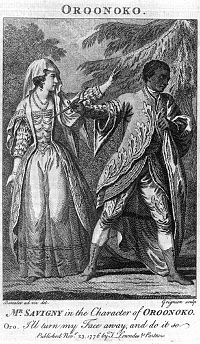
The themes about the person and persona of the noble savage are the subjects of the novel Oroonoko: Or the Royal Slave (1688), by Aphra Behn, which is the tragic love story between Oroonoko and the beautiful Imoinda, an African king and queen respectively. At Coramantien, Ghana, the protagonist is deceived and delivered into the Atlantic slave trade (16th–19th centuries), and Oroonoko becomes a slave of plantation colonists in Surinam (Dutch Guiana, 1667–1954). In the course of his enslavement, Oroonoko meets the woman who narrates to the reader the life and love of Prince Oroonoko, his enslavement, his leading a slave rebellion against the Dutch planters of Surinam, and his consequent execution by the Dutch colonialists.
Despite Behn having written the popular novel for money, Oroonoko proved to be political-protest literature against slavery, because the story, plot, and characters followed the narrative conventions of the European romance novel. In the event, the Irish playwright Thomas Southerne adapted the novel Oroonoko into the stage play Oroonoko: A Tragedy (1696) that stressed the pathos of the love story, the circumstances, and the characters, which consequently gave political importance to the play and the novel for the candid cultural representation of slave-powered European colonialism.
Uses of the stereotype
Romantic primitivism
In the 1st century AD, in the book Germania, Tacitus ascribed to the Germans the cultural superiority of the noble savage way of life, because Rome was too civilized, unlike the savage Germans. The art historian Erwin Panofsky explains that:
There had been, from the beginning of Classical speculation, two contrasting opinions about the natural state of man, each of them, of course, a "Gegen-Konstruktion" to the conditions under which it was formed. One view, termed "soft" primitivism in an illuminating book by Lovejoy and Boas, conceives of primitive life as a golden age of plenty, innocence, and happiness — in other words, as civilized life purged of its vices. The other, "hard" form of primitivism conceives of primitive life as an almost subhuman existence full of terrible hardships and devoid of all comforts — in other words, as civilized life stripped of its virtues.
— Et in Arcadia Ego: Poussin and the Elegiac Tradition (1936)
In the novel The Adventures of Telemachus, Son of Ulysses (1699), in the “Encounter with the Mandurians” (Chapter IX), the theologian François Fénelon presented the noble savage stock character in conversation with civilized men from Europe about possession and ownership of Nature:
On our arrival upon this coast we found there a savage race who ... lived by hunting and by the fruits which the trees spontaneously produced. These people ... were greatly surprised and alarmed by the sight of our ships and arms and retired to the mountains. But since our soldiers were curious to see the country and hunt deer, they were met by some of these savage fugitives.
The leaders of the savages accosted them thus: “We abandoned for you, the pleasant sea-coast, so that we have nothing left, but these almost inaccessible mountains: at least, it is just that you leave us in peace and liberty. Go, and never forget that you owe your lives to our feeling of humanity. Never forget that it was from a people whom you call rude and savage that you receive this lesson in gentleness and generosity. ... We abhor that brutality which, under the gaudy names of ambition and glory, ... sheds the blood of men who are all brothers. ... We value health, frugality, liberty, and vigor of body and mind: the love of virtue, the fear of the gods, a natural goodness toward our neighbors, attachment to our friends, fidelity to all the world, moderation in prosperity, fortitude in adversity, courage always bold to speak the truth, and abhorrence of flattery. ...
If the offended gods so far blind you as to make you reject peace, you will find, when it is too late, that the people who are moderate and lovers of peace are the most formidable in war.”
— Encounter with the Mandurians, The Adventures of Telemachus, Son of Ulysses (1699)
In the 18th century, British intellectual debate about Primitivism used the Highland Scots as a local, European example of a noble savage people, as often as the American Indians were the example. The English cultural perspective scorned the ostensibly rude manners of the Highlanders, whilst admiring and idealizing the toughness of person and character of the Highland Scots; the writer Tobias Smollett described the Highlanders:
They greatly excel the Lowlanders in all the exercises that require agility; they are incredibly abstemious, and patient of hunger and fatigue; so steeled against the weather, that in traveling, even when the ground is covered with snow, they never look for a house, or any other shelter but their plaid, in which they wrap themselves up, and go to sleep under the cope of heaven. Such people, in quality of soldiers, must be invincible. . . .
— The Expedition of Humphry Clinker (1771)
Thomas Hobbes
The imperial politics of Western Europe featured debates about soft primitivism and hard primitivism worsened with the publication of Leviathan, or The Matter, Forme and Power of a Commonwealth Ecclesiasticall and Civil (1651), by Thomas Hobbes, which justified the central-government regime of absolute monarchy as politically necessary for societal stability and the national security of the state:
Whatsoever therefore is consequent to a time of War, where every man is Enemy to every man; the same is consequent to the time, wherein men live without other security, than what their own strength, and their own invention shall furnish them withall. In such condition, there is no place for Industry; because the fruit thereof is uncertain; and consequently no Culture of the Earth; no Navigation, nor use of the commodities that may be imported by Sea; no commodious Building; no Instruments of moving, and removing such things as require much force; no Knowledge of the face of the Earth; no account of Time; no Arts; no Letters; no Society; and which is worst of all, continuall feare, and danger of violent death; And the life of man, solitary, poore, nasty, brutish, and short.
— Leviathan
In the Kingdom of France, critics of the Crown and Church risked censorship and summary imprisonment without trial, and primitivism was political protest against the repressive imperial règimes of Louis XIV and Louis XV. In his travelogue of North America, the writer Louis-Armand de Lom d'Arce de Lahontan, Baron de Lahontan, who had lived with the Huron Indians (Wyandot people), ascribed deist and egalitarian politics to Adario, a Canadian Indian who played the role of noble savage for French explorers:
Adario sings the praises of Natural Religion. ... As against society, he puts forward a sort of primitive Communism, of which the certain fruits are Justice and a happy life. ... [The Savage] looks with compassion on poor civilized man — no courage, no strength, incapable of providing himself with food and shelter: a degenerate, a moral cretin, a figure of fun in his blue coat, his red hose, his black hat, his white plume and his green ribands. He never really lives, because he is always torturing the life out of himself to clutch at wealth and honors, which, even if he wins them, will prove to be but glittering illusions. ... For science and the arts are but the parents of corruption. The Savage obeys the will of Nature, his kindly mother, therefore he is happy. It is civilized folk who are the real barbarians.
— Paul Hazard, The European Mind
Interest in the remote peoples of the Earth, in the unfamiliar civilizations of the East, in the untutored races of America and Africa, was vivid in France in the 18th century. Everyone knows how Voltaire and Montesquieu used Hurons or Persians to hold up the [looking] glass to Western manners and morals, as Tacitus used the Germans to criticize the society of Rome. But very few ever look into the seven volumes of the Abbé Raynal's History of the Two Indies, which appeared in 1772. It is however one of the most remarkable books of the century. Its immediate practical importance lay in the array of facts which it furnished to the friends of humanity in the movement against negro slavery. But it was also an effective attack on the Church and the sacerdotal system. ... Raynal brought home to the conscience of Europeans the miseries which had befallen the natives of the New World through the Christian conquerors and their priests. He was not indeed an enthusiastic preacher of Progress. He was unable to decide between the comparative advantages of the savage state of nature and the most highly cultivated society. But he observes that "the human race is what we wish to make it", that the felicity of Man depends entirely on the improvement of legislation, and ... his view is generally optimistic.
— J.B. Bury, The Idea of Progress: an Inquiry into its Origins and Growth
Benjamin Franklin
Benjamin Franklin was critical of government indifference to the Paxton Boys massacre of the Susquehannock in Lancaster County, Pennsylvania in December 1763. Within weeks of the murders, he published A Narrative of the Late Massacres in Lancaster County, in which he referred to the Paxton Boys as "Christian white savages" and called for judicial punishment of those who carried the Bible in one hand and a hatchet in the other.
When the Paxton Boys led an armed march on Philadelphia in February 1764, with the intent of killing the Moravian Lenape and Mohican who had been given shelter there, Franklin recruited associators including Quakers to defend the city and led a delegation that met with the Paxton leaders at Germantown outside Philadelphia. The marchers dispersed after Franklin convinced them to submit their grievances in writing to the government.
In his 1784 pamphlet Remarks Concerning the Savages of North America, Franklin especially noted the racism inherent to the colonists using the word savage as a synonym for indigenous people:
"Savages" we call them, because their manners differ from ours, which we think the perfection of civility; they think the same of theirs.
Franklin praised the way of life of indigenous people, their customs of hospitality, their councils of government, and acknowledged that while some Europeans had foregone civilization to live like a "savage", the opposite rarely occurred, because few indigenous people chose "civilization" over "savagery".
Jean-Jacques Rousseau

Like the Earl of Shaftesbury in the Inquiry Concerning Virtue, or Merit (1699), Jean-Jacques Rousseau likewise believed that Man is innately good, and that urban civilization, characterized by jealousy, envy, and self-consciousness, has made men bad in character. In Discourse on the Origins of Inequality Among Men (1754), Rousseau said that in the primordial state of nature, man was a solitary creature who was not méchant (bad), but was possessed of an "innate repugnance to see others of his kind suffer."
Moreover, as the philosophe of the Jacobin radicals of the French Revolution (1789–1799), ideologues accused Rousseau of claiming that the noble savage was a real type of man, despite the term not appearing in work written by Rousseau; in addressing The Supposed Primitivism of Rousseau’s Discourse on Inequality (1923), the academic Arthur O. Lovejoy said that:
The notion that Rousseau’s Discourse on Inequality was essentially a glorification of the State of Nature, and that its influence tended to wholly or chiefly to promote “Primitivism” is one of the most persistent historical errors.
In the Discourse on the Origins of Inequality, Rousseau said that the rise of humanity began a "formidable struggle for existence" between the species man and the other animal species of Nature. That under the pressure of survival emerged le caractère spécifique de l'espèce humaine, the specific quality of character, which distinguishes man from beast, such as intelligence capable of "almost unlimited development", and the faculté de se perfectionner, the capability of perfecting himself.
Having invented tools, discovered fire, and transcended the state of nature, Rousseau said that "it is easy to see. . . . that all our labors are directed upon two objects only, namely, for oneself, the commodities of life, and consideration on the part of others"; thus amour propre (self-regard) is a "factitious feeling arising, only in society, which leads a man to think more highly of himself than of any other." Therefore, "it is this desire for reputation, honors, and preferment which devours us all . . . this rage to be distinguished, that we own what is best and worst in men — our virtues and our vices, our sciences and our errors, our conquerors and our philosophers — in short, a vast number of evil things and a small number of good [things]"; that is the aspect of character "which inspires men to all the evils which they inflict upon one another."
Men become men only in a civil society based upon law, and only a reformed system of education can make men good; the academic Lovejoy explains that:
For Rousseau, man's good lay in departing from his "natural" state — but not too much; "perfectability", up to a certain point, was desirable, though beyond that point an evil. Not its infancy but its jeunesse [youth] was the best age of the human race. The distinction may seem to us slight enough; but in the mid-eighteenth century it amounted to an abandonment of the stronghold of the primitivistic position. Nor was this the whole of the difference. As compared with the then-conventional pictures of the savage state, Rousseau's account, even of this third stage, is far less idyllic; and it is so because of his fundamentally unfavorable view of human nature quâ human. ... [Rousseau's] savages are quite unlike Dryden's Indians: "Guiltless men, that danced away their time, / Fresh as the groves and happy as their clime" or Mrs. Aphra Behn's natives of Surinam, who represented an absolute idea of the first state of innocence "before men knew how to sin." The men in Rousseau's "nascent society" already had 'bien des querelles et des combats" [many quarrels and fights]; l'amour propre was already manifest in them ... and slights or affronts were consequently visited with vengeances terribles.
Rousseau proposes reorganizing society with a social contract that will "draw from the very evil from which we suffer the remedy which shall cure it"; Lovejoy notes that in the Discourse on the Origins of Inequality, Rousseau:
declares that there is a dual process going on through history; on the one hand, an indefinite progress in all those powers and achievements which express merely the potency of man's intellect; on the other hand, an increasing estrangement of men from one another, an intensification of ill-will and mutual fear, culminating in a monstrous epoch of universal conflict and mutual destruction. And the chief cause of the latter process Rousseau, following Hobbes and [Bernard] Mandeville, found, as we have seen, in that unique passion of the self-conscious animal — pride, self esteem, le besoin de se mettre au dessus des autres [the need to put oneself above others]. A large survey of history does not belie these generalizations, and the history of the period since Rousseau wrote lends them a melancholy verisimilitude. Precisely the two processes, which he described have ... been going on upon a scale beyond all precedent: immense progress in man's knowledge and in his powers over nature, and, at the same time, a steady increase of rivalries, distrust, hatred and, at last, "the most horrible state of war" ... [Moreover, Rousseau] failed to realize fully how strongly amour propre tended to assume a collective form ... in pride of race, of nationality, of class.
Charles Dickens
In 1853, in the weekly magazine Household Words, Charles Dickens published a negative review of the Indian Gallery cultural program, by the portraitist George Catlin, which then was touring England. About Catlin's oil paintings of the North American natives, the poet and critic Charles Baudelaire said that "He [Catlin] has brought back alive the proud and free characters of these chiefs; both their nobility and manliness."
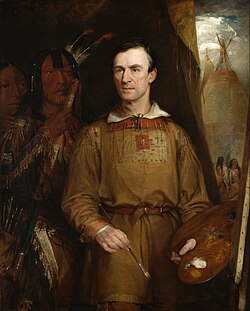

Despite European idealization of the noble savage as a type of morally superior man, in the essay “The Noble Savage” (1853), Dickens expressed repugnance for the American Indians and their way of life, because they were dirty and cruel and continually quarrelled among themselves. In the satire of romanticised primitivism Dickens showed that the painter Catlin, the Indian Gallery of portraits and landscapes, and the white people who admire the idealized American Indians or the bushmen of Africa are examples of the term noble savage used as a means of Othering a person into a racialist stereotype. Dickens begins by dismissing the noble savage as not being a distinct human being:
To come to the point at once, I beg to say that I have not the least belief in the Noble Savage. I consider him a prodigious nuisance and an enormous superstition. . . .
I don't care what he calls me. I call him a savage, and I call a savage a something highly desirable to be civilized off the face of the Earth. . . .
The noble savage sets a king to reign over him, to whom he submits his life and limbs without a murmur or question, and whose whole life is passed chin deep in a lake of blood; but who, after killing incessantly, is in his turn killed by his relations and friends the moment a grey hair appears on his head. All the noble savage's wars with his fellow-savages (and he takes no pleasure in anything else) are wars of extermination — which is the best thing I know of him, and the most comfortable to my mind when I look at him. He has no moral feelings of any kind, sort, or description; and his "mission" may be summed up as simply diabolical.
Dickens ends his cultural criticism by reiterating his argument against the romanticized persona of the noble savage:
To conclude as I began. My position is that if we have anything to learn from the Noble Savage it is what to avoid. His virtues are a fable; his happiness is a delusion; his nobility, nonsense. We have no greater justification for being cruel to the miserable object, than for being cruel to a WILLIAM SHAKESPEARE or an ISAAC NEWTON; but he passes away before an immeasurably better and higher power than ever ran wild in any earthly woods, and the world will be all the better when this place [Earth] knows him no more.
Theories of racialism
In 1860, the physician John Crawfurd and the anthropologist James Hunt identified the racial stereotype of the noble savage as an example of scientific racism, yet, as advocates of polygenism — that each race is a distinct species of Man — Crawfurd and Hunt dismissed the arguments of their opponents by accusing them of being proponents of "Rousseau's Noble Savage". Later in his career, Crawfurd re-introduced the noble savage term to modern anthropology and deliberately ascribed coinage of the term to Jean-Jacques Rousseau.
Modern perspectives
Supporters of primitivism
In "The Prehistory of Warfare: Misled by Ethnography" (2006), the researchers Jonathan Haas and Matthew Piscitelli challenged the idea that the human species is innately bellicose and that warfare is an occasional activity by a society, but is not an inherent part of human culture. Moreover, the UNESCO's Seville Statement on Violence (1986) specifically rejects claims that the human propensity towards violence has a genetic basis.
Anarcho-primitivists, such as the philosopher John Zerzan, rely upon a strong ethical dualism between Anarcho-primitivism and civilization; hence, "life before domestication [and] agriculture was, in fact, largely one of leisure, intimacy with nature, sensual wisdom, sexual equality, and health." Zerzan's claims about the moral superiority of primitive societies are based on a certain reading of the works of anthropologists, such as Marshall Sahlins and Richard Borshay Lee, wherein the anthropologic category of primitive society is restricted to hunter-gatherer societies who have no domesticated animals or agriculture, e.g. the stable social hierarchy of the American Indians of the north-west North America, who live from fishing and foraging, is attributed to having domesticated dogs and the cultivation of tobacco, that animal husbandry and agriculture equal civilization.
In anthropology, the argument has been made that key tenets of the noble-savage idea inform cultural investments in places seemingly removed from the Tropics, such as the Mediterranean and specifically Greece, during the debt crisis by European institutions (such as documenta) and by various commentators who found Greece to be a positive inspiration for resistance to austerity policies and the neoliberalism of the EU These commentators' positive embrace of the periphery (their noble-savage ideal) is the other side of the mainstream views, also dominant during that period, that stereotyped Greece and the South as lazy and corrupt.
Opponents of primitivism
In War Before Civilization: the Myth of the Peaceful Savage (1996), the archaeologist Lawrence H. Keeley said that the "widespread myth" that "civilized humans have fallen from grace from a simple, primeval happiness, a peaceful golden age" is contradicted and refuted by archeologic evidence that indicates that violence was common practice in early human societies. That the noble savage paradigm has warped anthropological literature to political ends. Moreover, the anthropologist Roger Sandall likewise accused anthropologists of exalting the noble savage above civilized man, by way of designer tribalism, a form of romanticised primitivism that dehumanises Indigenous peoples into the cultural stereotype of the indigène peoples who live a primitive way of life demarcated and limited by tradition, which discouraged Indigenous peoples from cultural assimilation into the dominant Western culture.
In the 2003 book, Constant Battles: Why we fight written by Steven LeBlanc, a professor of archaeology at Harvard University who specializes in the American Southwest, LeBlanc further documents the mythical notion of primitive non-violence against foreign tribal peoples, internal strife and internecine violence, as well as violence against animals and wildlife. In many of these instances the homicide rate even rising to substantially higher levels than that seen in modernity.